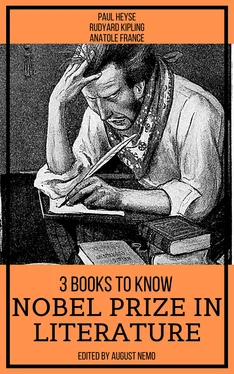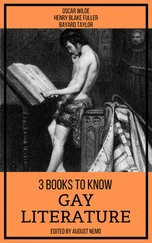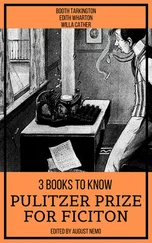At the time we have made the brothers' acquaintance, they had lived together in the shoemaker's back building, the so-called "tun," about five years. Edwin had first gone to Berlin alone, in order to devote himself exclusively to the study of philosophy and physical science, for which he had little opportunity in Breslau. He had been unable to resolve to enter into any money-making business, and his study of law was a mere pretence. So when he found himself acting in direct opposition to his benefactor's wishes, he thought it dishonorable to continue to eat the bread of one with whose opinions he could not coincide. Balder meantime remained in his old home, but as soon as Edwin could support both, was to follow him to Berlin.
This was not accomplished as speedily as the latter had at first hoped. Months elapsed before he could fit himself for a tutor, as the private lessons he had undertaken robbed him of both time and patience. Then followed anxieties about his first lectures, which, with great difficulty, he obtained an opportunity to deliver, and which brought in nothing. During all this time, his only intercourse with his brother was by means of frequent letters, until at last he could bear the separation no longer, and one Whitsuntide went to Breslau, to ask the beloved youth if he felt strong enough to share his poverty. Balder flushed to the roots of his hair with joyful agitation at this question, which fulfilled the most secret wish of his heart. He had only been withheld from making the proposal long before, by the fear of becoming a burden to his brother. Now he confessed that he had quietly made arrangements not to be entirely dependent on Edwin, though he would have submitted to be supported by him more willingly than by any one else. He had found an opportunity to learn turning, from a neighbor, and in the space of a year the young apprentice had made so much progress, that any master workman would gladly have engaged him for a journeyman. With shamefaced consciousness, he showed Edwin a number of pretty household utensils which he had made for his foster-mother and the family of the teacher with whom he boarded. "I see," said Edwin, smiling, "that I probably pursue the least lucrative of all professions, and shall be doing a very good thing in forming a partnership with my skillful brother. But wait, my lad, I won't fail to add my contribution to the capital with which we begin. The next fee I receive—I am coaching the weak-minded son of a count for his examination—we will devote to the purchase of the best turning-lathe that is to be found in all Berlin."
––––––––

Day had long since dawned over the great city, and the little house in the Dorotheen-strasse prided itself upon remaining no whit behind its more aristocratic neighbors in this respect. The occupants of the "tun" were usually no late sleepers, and Balder in particular never failed to hear the general alarm-clock of the house, the old pump-handle, which sang a well-meant but monotonous morning song, when at six o'clock in summer and seven in winter, Reginchen set it in motion to get her father his glass of water for breakfast. At the same time the windows in the workshop were opened, and the grumbling of the head journeyman, who took advantage of the half hour before the master appeared, to make the apprentices feel his importance, became audible. But as soon as the master of the house, in his loose jacket and slippers, crossed the courtyard, everything below was perfectly still. Indeed, though the brothers had been unable to procure a watch, they had no occasion to be at a loss to know the time, even during the day. Exactly one hour after the first music of the pump, Reginchen appeared in the "tun" with the well-beaten clothes and the breakfast. Punctually at nine o'clock a window was opened in the second story, a yellow old face in a night-cap, the once famous actress, stretched out a wrinkled little nose to find out which way the wind was blowing, as her husband, the tenor, though he no longer had occasion to spare his high C, could not give up the habit of staying in the house when there was an East wind. Precisely one hour after, the little man himself appeared at another window which opened upon the courtyard, not lighted by the sun, to shave with great deliberation and apply before the little mirror the necessary cosmetics, which an old celebrity of the stage considers an indispensable, nay, an incontestable proof of the dignity of his calling. When eleven o'clock struck, the piano in the room below, occupied by Fräulein Christiane, with whom we formed a passing acquaintance in the first chapter, was opened, and a practised hand struck a few notes by way of prelude to a singing-lesson, which, from consideration for Edwin had been deferred to this time, when he usually went to his lecture. Various pupils came to take lessons; of late, twice a week a merry soubrette, belonging to one of the theatres in the suburbs, appeared, who desired to practise her little parts in new operettas, and drove her grave teacher to despair by a number of blunders, musical and otherwise. As a loud conversation could be heard through the open windows, almost word for word, Balder often became an ear-witness to the most singular scenes, which afforded him a glimpse of an utterly unknown world. Punctually at twelve o'clock the dinner-bell rang, and was usually hailed by the pupil with a merrily whistled street song, as the grateful feeling of release could be expressed in no better way.
The household clock performed its duty to-day as well as ever, but the occupants of the upper story in the back building seemed deaf to its sounds. The pump's morning song died away unheard. No "come in" answered the low knock an hour later, and, after a short delay and a shake, of the head, the slender household sprite, hanging the clothes on the banister of the stairs, glided down again with the breakfast. Miezica, the white cat, which at the same time appeared at the window to be fed by Balder, remained on the broad sill that ran from gutter to gutter, staring into the room, where no living creature was yet stirring. Not until the yellow top of the acacia-tree was gilded by the rising sun—it must have been ten minutes past ten for the old tenor was just beginning to powder himself—did Balder open his eyes, astonished at the bright light that filled the room. He looked toward Edwin; the latter gave no sign that the sunlight was too dazzling for him to continue his dreams.
Softly the youth rose and limped to the turning-lathe in the corner, where he noiselessly arranged a variety of tools, bits of wood, and little bottles. He did not, however, begin to work, but taking a book, became for a time absorbed in its contents. Suddenly the thoughts which had kept him awake so long during the night, seemed to return. He laid the book aside, opened a window, and leaned out into the already heated air.
Ere long a low knock at the door roused him from his reverie. He glided on tip-toe past the sleeper, and slipped through the half-opened door into the dusky entry.
Reginchen stood without; her round face, whose eyes and mouth were ever ready to bubble over with mirth, was turned toward him with a sort of curious anxiety.
"Good morning, Reginchen," he whispered. "I can't let you in, he is still asleep. He did not go to rest until long after midnight; I am glad the sun does not wake him. You have already been to the door once—I overslept myself too, contrary to my custom—we talked so long last night. I am sorry we have made you so much trouble, Reginchen. Give me the waiter, I will carry the breakfast in."
"It is no trouble," replied the young girl, who when talking to the brothers always tried to correct her Berlin dialect as much as possible, but without precisely solving the mystery of the dative and accusative. "But you will be completely starved. Sha'n't I get you some coffee? Cold milk on an empty stomach—"
Читать дальше













